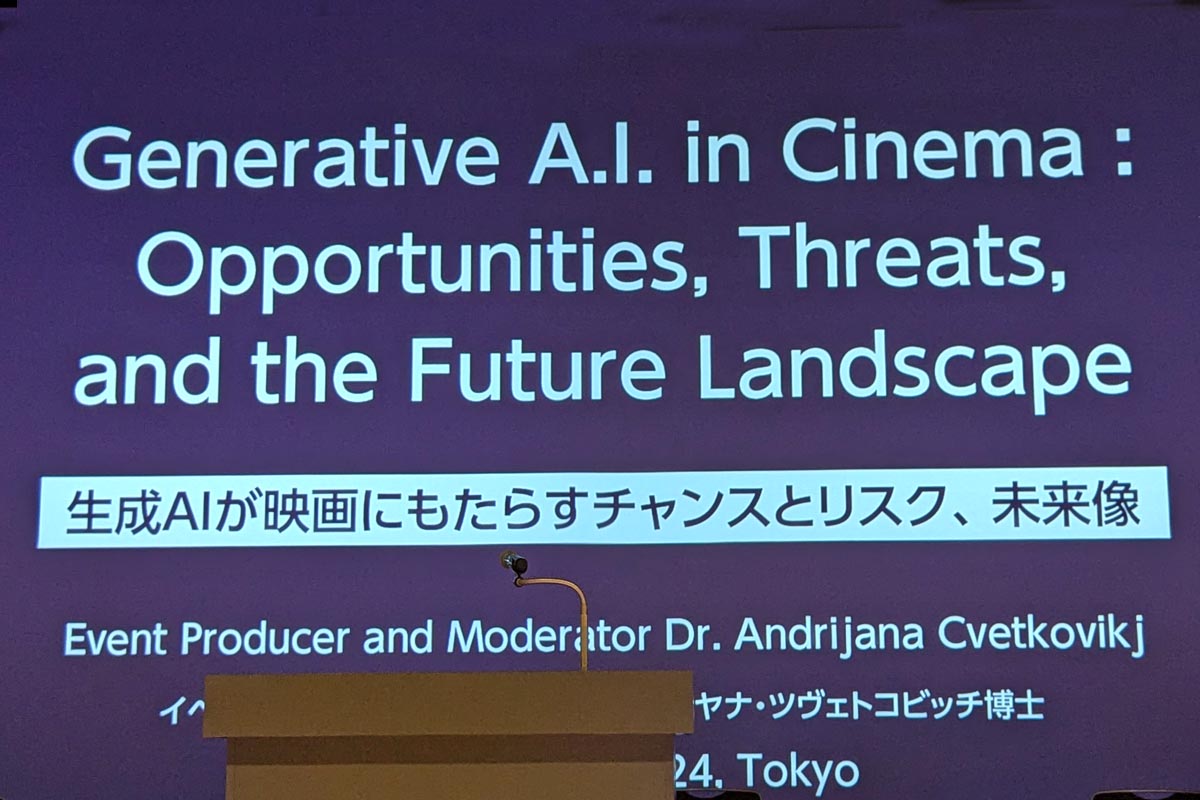Hi, this is Izumitani from the Ehime Film Commission (Ehime FC).
In the film industry, “pitching” refers to a short presentation (usually around five minutes) where creators propose their projects in hopes of securing funding, locations, or other production resources.
At BIFFCOM, I had the chance to attend a pitching session and see it in action.
The High-Stakes World of Pitching
The audience for these pitches consists of producers and industry professionals who have the resources—funding, connections, and production capabilities—to bring a film to life.
If a pitch goes well, interested backers will gather to discuss potential collaboration. If it flops, the presenter may leave without a single offer. It’s truly a make-or-break moment for filmmakers.
A New Era of Pitching: AI-Generated Images
At one of the sessions I attended, nine student groups presented their projects, and I found the pitches incredibly engaging. What caught my attention was how these young creators effectively used AI-generated images to bring their film concepts to life.
When pitching a project that hasn’t been made yet, it’s crucial to convey the film’s visual tone. Traditionally, filmmakers relied on hand-drawn sketches or written descriptions, but now, many are using AI-generated images as storyboards—and I was impressed!
For example, horror films can be particularly difficult to visually represent before production, and finding free stock images that fit the tone is nearly impossible. In the past, filmmakers had to rely on hand-drawn images or just describe the mood in words.
However, with AI-powered tools, they can now generate exactly the kind of eerie, atmospheric visuals they need, making the pitches more impactful and convincing.
AI as a Game-Changer for Complex Stories
Another huge benefit of AI-generated images is that they help clarify complex narratives.
Some of the projects had intricate storylines that were difficult to grasp in a short pitch. However, AI-generated visuals helped bridge that gap by providing clear, immersive representations of key moments in the story.
I personally believe that if AI can generate full storyboards, it could revolutionize the pre-production process—adjusting tone, camera angles, lighting, and backgrounds with incredible detail. Young filmmakers are already embracing this technology, and it’s clear that the industry is changing fast.
Funding and the Role of Film Commissions
Since this pitching session was held in Busan, South Korea, most projects were set in Korea, although many had connections to Japan as well.
Many filmmakers were seeking producers familiar with the Korean market, and most were requesting budgets ranging from 40 million to 80 million yen per film.
As a film commission, we don’t provide direct funding, but I realized we could support filmmakers in other ways—like introducing filming locations and helping reduce accommodation costs. Seeing how these young filmmakers are using AI and adapting to new production methods was truly inspiring. I’m excited to see how these technological advancements continue to shape the future of film!


